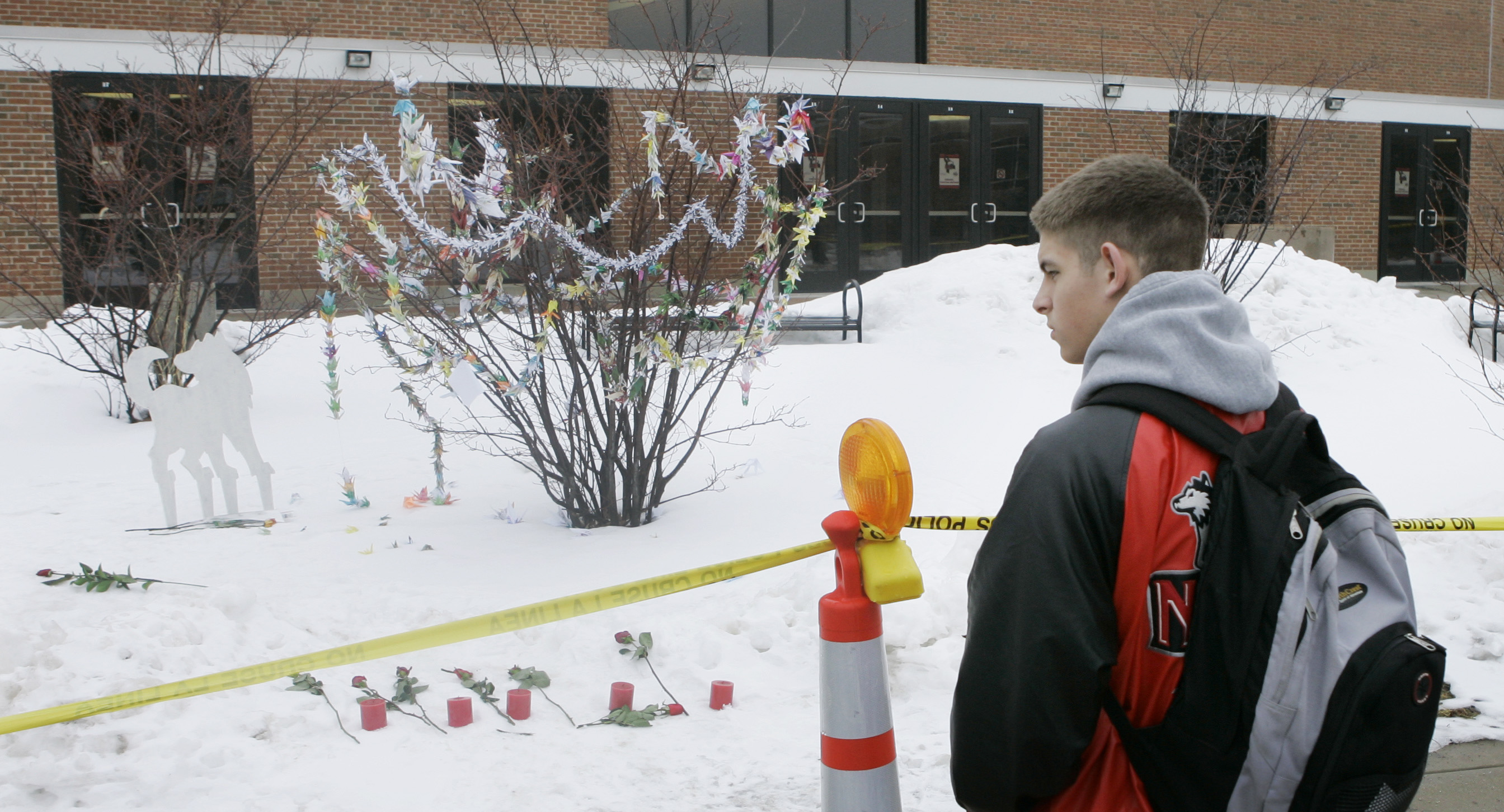10 Years After NIU, Shooting Survivor Reflects On Florida Tragedy
By Mariah Woelfel, Gabrielle A. Wright

10 Years After NIU, Shooting Survivor Reflects On Florida Tragedy
By Mariah Woelfel, Gabrielle A. WrightTen years ago Wednesday, Jamika Oshogo hid lying on the ground as a gunman opened fire in her classroom at Northern Illinois University.
She survived, but the shooting left five of her classmates dead.
The 10th anniversary of that day now sits parallel with another mass shooting — of a larger scale — at a Florida high school. That shooting has so far left 17 people dead and adds to the list of dozens of mass shootings in the past decade.
Oshogo, who is now a junior high teacher in suburban Oak Park, joined WBEZ’s Melba Lara to talk about how she’s reacting to yesterday’s shooting.
On hearing about yesterday’s shooting
Jamika Oshogo: To be honest, initially I was numb. Yesterday was a little bit emotional for me anyway, being as it was the 10-year anniversary of the [NIU] shooting. So when I first heard about [the Florida shooting] I kind of felt like I was dreaming or it wasn’t real. But as the day went on, it just made me sad, and I didn’t really know how to receive it.
My heart breaks every single time I hear about a shooting or anything like that. Because you can never really understand the process unless you actually have gone through it, and no one should ever go through it.

On changes in school security over the last few years
Oshogo: All of the doors are locked all the time, which is a very good thing. I do notice that we have lockdown drills, which is something that we didn’t have before. I don’t remember ever having a lockdown drill when I was in elementary school or junior high. But now those are things that we practice. Sometimes those can be a little bit rough, because children often think it’s a game.
It’s hard because, having gone through this experience firsthand, I know that there is only a very small amount of preparation you can actually do for a situation like that. You can do the best that you can, but every situation is different. You just have to hope for the best. Whatever your hope lies in, that’s how you have to just go through things.

On what she would tell families of survivors
Oshogo: Specifically for those of the families of the survivors: Be as present as possible without overstepping, and even with that sometimes, you need to overstep. I look back, and my situation, it wasn’t that common back then. So people were still figuring out how to deal with trauma and this capacity and what to do.
Personally, I could be a little stubborn and tried to be stronger than maybe I should. I pushed off help initially more than I probably should have. I would have have preferred for some people to kind of break those walls down initially. So I would say be as comforting as possible, but also don’t allow the person to stay in that moment. Sometimes you have to turn the TV off. You have to be a good distraction, where you don’t talk about it at all. Just be a light.
This interview has been edited for brevity and clarity. Click the “play” button to hear an audio version.
